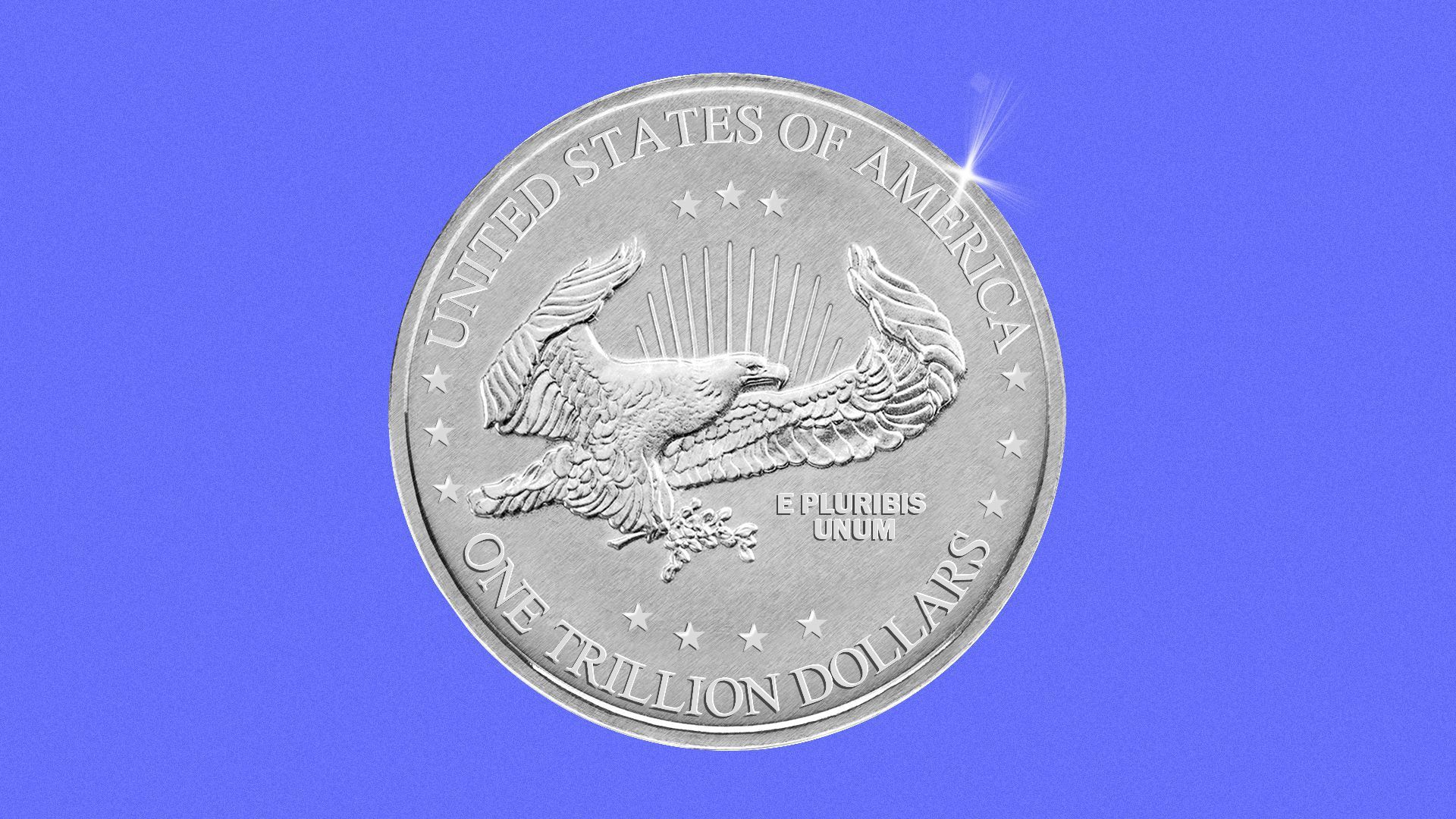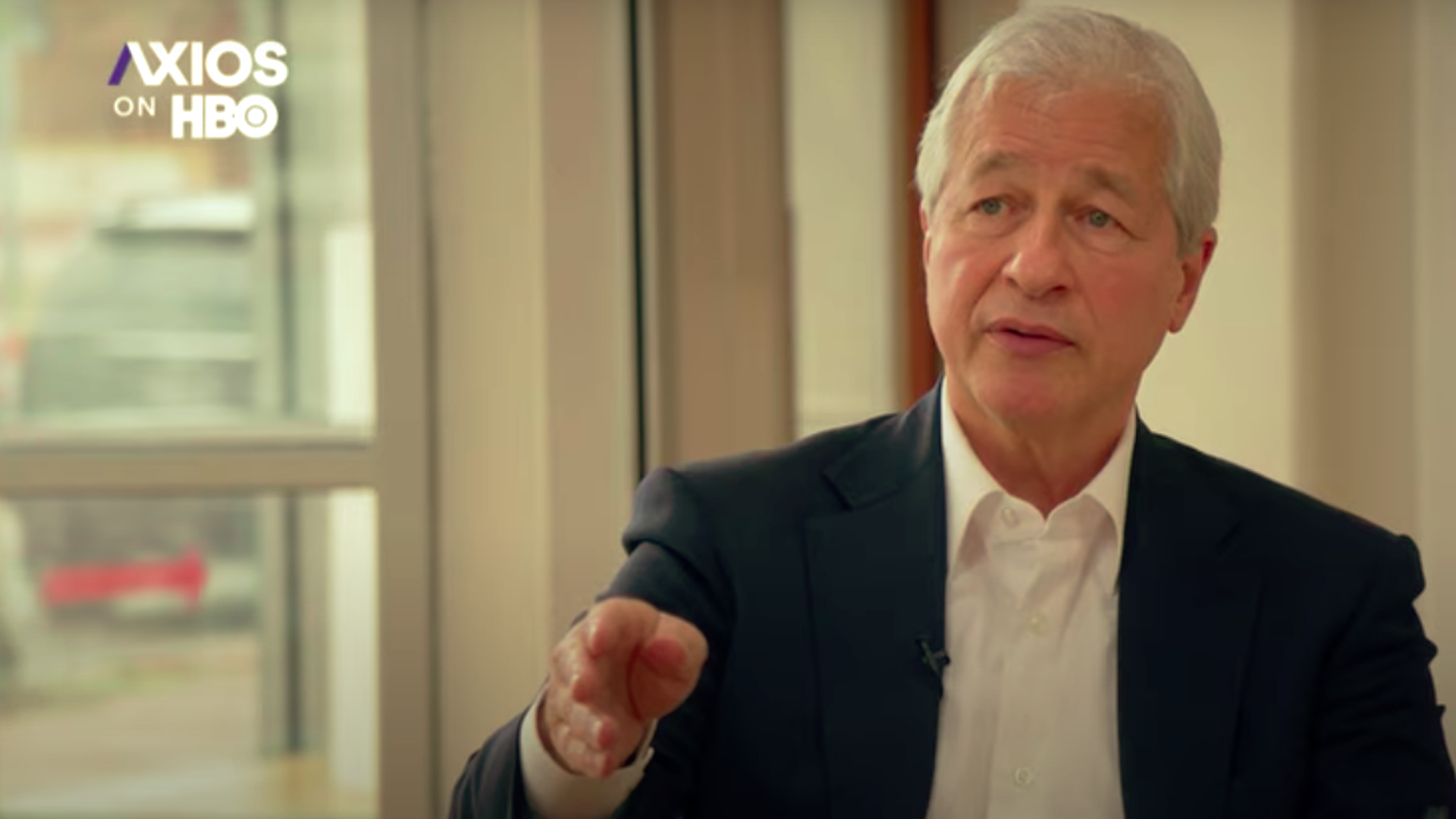| | | | | | | Presented By Goldman Sachs One Million Black Women | | | | Axios Markets | | By Kate Marino ·Oct 04, 2021 | | 🌅 Good morning, and welcome back to the grind. 🚨 Situational Awareness: Remember the Panama Papers? The sequel dropped Sunday, dubbed the "Pandora Papers." It's another extensive investigation from hundreds of journalists around the globe that reveals new ways the wealthy and powerful hide their assets and avoid taxes. It also shows that at a high level, little has changed since the Panama Papers were published in 2016. - The Pandora Papers implicate more than twice as many politicians and public officials as the Panama Papers did — about 330 of them from 90 countries and territories, including 35 current and former heads of state.
📈 Let's get down to business. Today's newsletter is 1,335 words, 5 minutes. | | | | | | 1 big thing: Emerging from the Delta slowdown |  | | | Illustration: Shoshana Gordon/Axios | | | | Friday brought us a pile of fresh data to pick through for signs of the economy's rebound from the Delta-induced slowdown. Why it matters: One important indicator of economic activity surprised to the upside. But continuing supply chain problems and so-so August consumer spending may still put economists' Q3 growth targets (which have already been revised down) out of reach. Driving the news: The Institute for Supply Management's Manufacturing PMI index grew to 61.1 in September, from 59.9, indicating an expansion in the overall economy. - That's a good sign. Economists had estimated the index would contract slightly, to 59.5.
The big picture: "This gives the overall impression of an economy that's at least stabilizing, if not re-accelerating," Steve Chiavarone, portfolio manager and equity strategist at Federated Hermes, tells Axios. - He adds that Federated Hermes' internal reopening index — which tracks activities like office key-card swipes and OpenTable reservation activity — has also been moving higher over the last couple of weeks as new COVID cases decline.
Yes, but: The ISM release showed that employment grew little in the sector, amid stressed transportation networks and slower delivery times. The intrigue: While ISM overall gave reason for optimism, Friday's data dump also included consumer spending numbers for August — which, when adjusted for inflation, show a stagnant second quarter for that engine of GDP. - Spending grew 0.8% compared with July, according to the Bureau of Economic Analysis.
- But real, inflation-adjusted spending was only up 0.4%. And after a big downward revision for July — to negative 0.5% — the first two months of the third quarter are basically a wash.
- "The data make it pretty clear that the third-quarter consumer spending numbers are going to be very disappointing when it comes to GDP," says Luke Tilley, chief economist at Wilmington Trust.
Our thought bubble: The well-documented supply chain problems are no doubt holding back both consumer spending (not enough goods on the shelves) and manufacturing (there's still a big order backlog). The bottom line: "[Friday's] releases were more or less in line with the narrative that the economy and consumer are strong, but the pressures in the supply chain are having a significant, but not game-changing, effect in limiting supply and capping growth," Matt Peron, director of research at Janus Henderson Investors, wrote in a research note. |     | | | | | | 2. Catch up quick | | China Evergrande on Monday requested a halt in trading of its shares and said it plans to sell a majority stake in its property management business for about $5 billion. (Reuters) A former Facebook product manager named Frances Haugen revealed herself as the whistleblower who leaked thousands of pages of internal company research for a Wall Street Journal series. Her lawyers have filed complaints with the SEC that highlight how the company's public statements compare to Haugen's findings. (Washington Post) The Biden administration is considering strategies to require bank-like regulation of cryptocurrency companies that issue stablecoins, and may ask Congress to consider legislation creating special charters. (WSJ) |     | | | | | | 3. The story behind #mintthecoin |  | | | Illustration: Aïda Amer/Axios | | | | An increasingly vocal chorus of commentators is saying that the U.S. Treasury should #MintTheCoin — issue a small platinum token, give it a face value of $1 trillion and deposit it at the Federal Reserve, Axios' Felix Salmon writes. Why it matters: The gambit, if successful, would prevent the potentially catastrophic debt default that, thanks to Congressional intransigence on both sides of the aisle, is looming fast. The big picture: When a U.S. Treasury secretary is tasked with averting a fast-looming potential cataclysm, she has to consider all possible options — even those that seem bizarre at first light. - Treasury has reportedly considered and rejected the platinum-coin idea — but then again, Treasury Secretary Robert Rubin said in 1995 that using the Exchange Stabilization Fund to bail out Mexico would be impossible. (He ended up doing exactly that just a few weeks later.)
How it works: The Fed, once given the coin, would credit Treasury's account with $1 trillion that would not count toward the national debt. - The scheme looks legally feasible, although it would surely be challenged in the courts. Politically, however, it looks like a nonstarter. The Democratic Party is capable of raising the debt ceiling through the reconciliation process, but refuses to do so for political reasons: They want Republicans to grapple with the fiscal reality of the bills they have already passed.
Driving the news: Bloomberg executive editor Joe Weisenthal, who has an invaluable FAQ on the issue, says that he's "been coinpilled since at least 2013." More recent converts include Nobel laureate Paul Krugman, economist Dean Baker and former Mint director Philip Diehl. - They all agree that the debt ceiling serves no useful fiscal purpose: It's a dumb political cudgel that risks triggering an unconstitutional and catastrophic default.
- The trillion-dollar coin would effectively take that cudgel out of the hands of the politicians, rendering them slightly less capable of causing a calamity through inaction alone.
The other side: The trillion-dollar coin would allow the government to spend money without borrowing it or raising it via taxation. That could be a dangerous precedent to set. The bottom line: Even if it's legally sound, no one knows whether it's physically possible to mint a platinum coin between now and Oct. 18, when the U.S. risks going into default. Maybe we'll find out at some point in the next few weeks. Go deeper. |     | | | | | | A message from Goldman Sachs One Million Black Women | | How investing in Black women can transform the economy | | |  | | | | Reducing the earnings gap for Black women could generate up to 1.7 million US jobs and 2.1% annual GDP growth. Through One Million Black Women, Goldman Sachs is deploying $10 billion of investment capital in ideas, institutions and organizations aimed at doing just that. Learn more.  | | | | | | 4. "Axios on HBO": Jamie Dimon on China and racial equity |  | | | Screenshot: "Axios on HBO" | | | | JPMorgan Chase chairman and CEO Jamie Dimon is known for being outspoken. But he told "Axios on HBO" that global companies must be selective about public issues they dive into, even ones as stark as China's treatment of Uyghurs. The big picture: "We do business in 100 countries," Dimon told Axios CEO Jim VandeHei. "But I've made it very clear: We believe in human rights. We believe in free enterprise. We believe in the capitalist system. That's all counter to China." Asked about commenting on hot U.S. issues, Dimon said: "Some we do and some we don't. Some we can't." - As an example, he said: "I love my daughters. But after I went on Trump's business council, one wrote me a long, elegant, nasty letter ... 'How could you, Dad?' And I wrote her back saying: 'You got everything right except the conclusion. Martin Luther King would be going, seeing President Trump every time to fight for his people.'"
"We are a for-profit company, but we also do good," Dimon said. "And there's nothing wrong with that. ... After COVID-19 and the murder of George Floyd, we kind of doubled down on: What can we do to help the Black community?" Sen. Tim Scott (R-S.C.) has criticized banks for "woke capitalism." VandeHei asked: "Is Jamie Dimon woke?" - "I mean, I don't even know what that means," Dimon answered with a laugh. "I just look at the issues: Is it right? Is it wrong? Should you do something about it? Is it proper for your company to do?"
Keep reading. |     | | |  | | | | If you like this newsletter, your friends may, too! Refer your friends and get free Axios swag when they sign up. | | | | | | | | 5. What we're watching this week |  | | | Illustration: Eniola Odetunde/Axios | | | | One word: Jobs. The September employment report is on deck for Friday morning. Why it matters: Anticipation for the fall numbers has been crackling for months, as the back-to-school season was supposed to free up more parents for the workforce, while the last of the extra unemployment benefits also rolled off. Yes, but: Is it still too early? - The Delta variant slowed job growth in August, and while the fall bump may start to show up in the September numbers, it may be less pronounced than economists previously hoped for.
The big picture: The Fed will be watching. - "First and foremost, [the jobs report] just needs to not be awful," Federated Hermes' Chiavarone says. "I think anything that's not catastrophic is sufficient for the Fed to move forward with tapering," he adds.
What to watch: Chiavarone is also keeping an eye on wage growth because that's one element that could impact near-term inflation acceleration. - The August report showed average hourly wages were 4.3% higher than they were a year ago. Within that, the leisure and hospitality sector, which is struggling to hire enough workers, saw wage growth of 10.3%.
|     | | | | | | A message from Goldman Sachs One Million Black Women | | Invest in Black women, transform the economy | | |  | | | | One Million Black Women, an initiative from Goldman Sachs, will commit $10 billion in investment capital. The goal: Increase opportunity at key moments in Black women's lives and create transformational economic growth. Learn more about the investment.  | | | | 📝 Administrative note… I failed to mention in Friday's newsletter that the lead story about all-stock M&A deals was written by the incomparable Courtenay Brown… read it here if you missed it. |  | | It'll help you deliver employee communications more effectively. | | | | | | Axios thanks our partners for supporting our newsletters. If you're interested in advertising, learn more here.
Sponsorship has no influence on editorial content. Axios, 3100 Clarendon Blvd, Suite 1300, Arlington VA 22201 | | | You received this email because you signed up for newsletters from Axios.
Change your preferences or unsubscribe here. | | | Was this email forwarded to you?
Sign up now to get Axios in your inbox. | | | | Follow Axios on social media:    | | | | | |
No comments:
Post a Comment